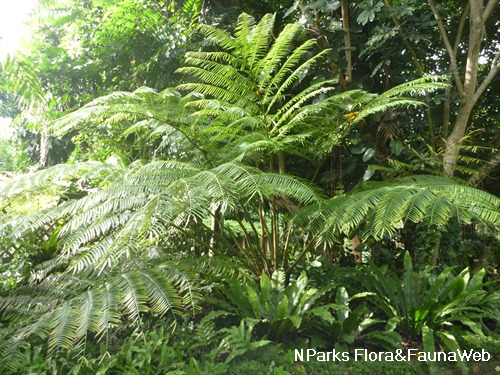
Back
Angiopteris evecta (G.Forst.) Hoffm.
| Family Name: | Marattiaceae |
| Common Name: | Elephant Fern, Paku Gajah, Turnip Fern, Duku, 莲座蕨 |
Name
Classifications and Characteristics
| Plant Division | Ferns & Lycophytes (Non-Seed Vascular Plants) (Fern) |
|---|---|
| Plant Growth Form | Herbaceous Plant |
| Lifespan (in Singapore) | Perennial |
| Mode of Nutrition | Autotrophic |
| Plant Shape | Irregular |
| Maximum Height | 3 m |
Biogeography
| Native Distribution | Madagascar, Sri Lanka, Vietnam, Thailand, Peninsular Malaysia, Singapore to Australia and the Pacific |
|---|---|
| Native Habitat | Terrestrial (Primary Rainforest, Freshwater Swamp Forest, Riverine) |
| Preferred Climate Zone | Tropical |
| Local Conservation Status | Native to Singapore (Vulnerable (VU)) |
Description and Ethnobotany
| Growth Form | This fern consists of a short, fleshy stem (rhizome) that bears many leaves at the tip. |
|---|---|
| Foliage | Its alternate, stalked, bipinnate leaves are up to 300 by 200 cm. Its primary leaflets (pinnae) are up to 100 cm long or more. Its second order leaflets (pinnules) are narrowly oblong to elliptic, and usually 20 by 2.5 cm, each with a swollen fleshy stalk, about 3 mm long. |
| Reproductive Parts - non-flowering plant | The sporangia (spore-producing structures) develop on the underside along the sides of the pinnules. |
| Habitat | It grows along shaded streams in primary forest, and on hills to 1,200 m altitude. |
| Associated Fauna | It is the food plant for caterpillars of the moths, grass webworm (Herpetogramma licarsisalis), and Spilosoma vandepolli. |
| Cultivation | It can be propagated by spores or division of the rhizome. |
| Etymology | Genus Angiopteris is from the Greek word "aggeion-pteruc" where "Angio" refers to winged vessel (the aggregated sporangia) and "pteris" means a fern. Species evecta means lifted up. |
| Ethnobotanical Uses | Edible Plant Parts : Edible Leaves Medicinal: The leaves are pounded to relieve coughs. The roots are used to stop bleeding after a miscarriage. The rhizome is used medicinally in Thailand. |
Landscaping Features
| Landscaping | This is a large, attractive, hardy ornamental fern, for shaded sites. Because of its size, it can serve as a centrepiece of a landscape design. |
|---|---|
| Desirable Plant Features | Ornamental Foliage |
| Landscape Uses | General, Parks & Gardens, Small Gardens, Focal Plant, Interiorscape/ Indoor Plant |
Fauna, Pollination and Dispersal
| Seed or Spore Dispersal | Abiotic |
|---|
Plant Care and Propagation
| Light Preference | Semi-Shade |
|---|---|
| Water Preference | Moderate Water |
| Plant Growth Rate | Slow |
| Rootzone Tolerance | Moist Soils, Well-Drained Soils, Fertile Loamy Soils |
| Propagation Method | Spore |
Foliar
| Mature Foliage Colour(s) | Green |
|---|
Image Repository
Others
| Master ID | 243 |
|---|---|
| Species ID | 1539 |
| Flora Disclaimer | The information in this website has been compiled from reliable sources, such as reference works on medicinal plants. It is not a substitute for medical advice or treatment and NParks does not purport to provide any medical advice. Readers should always consult his/her physician before using or consuming a plant for medicinal purposes. |

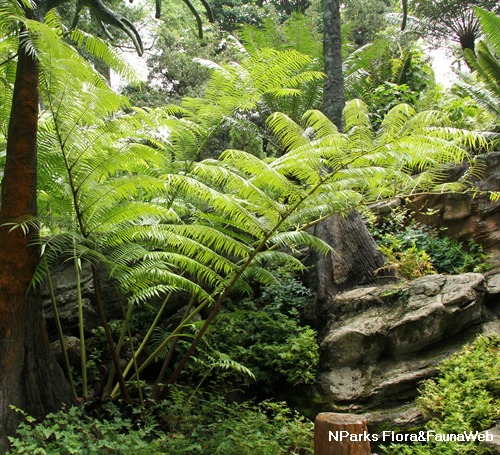
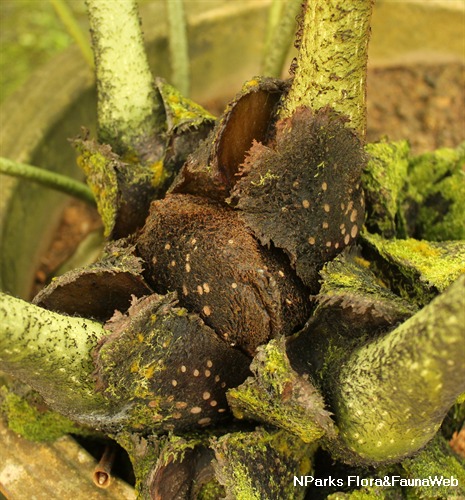
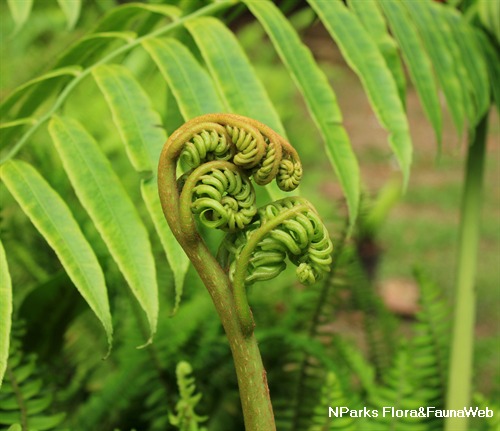
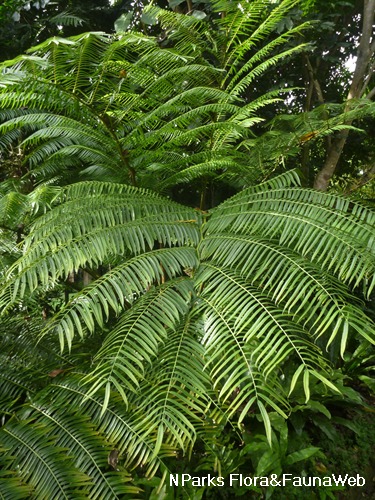
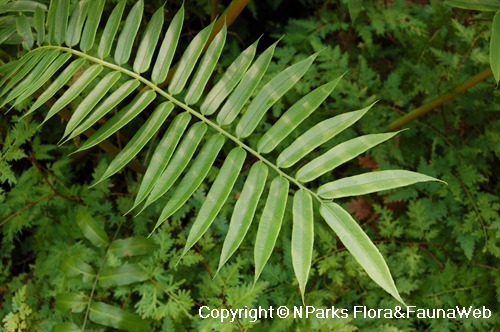
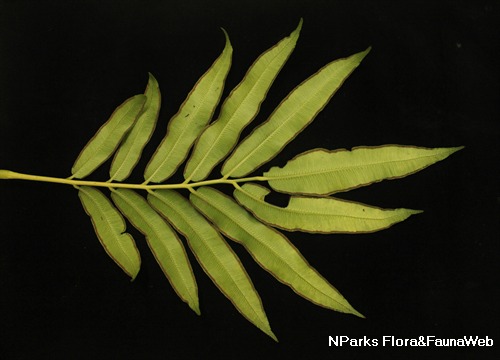
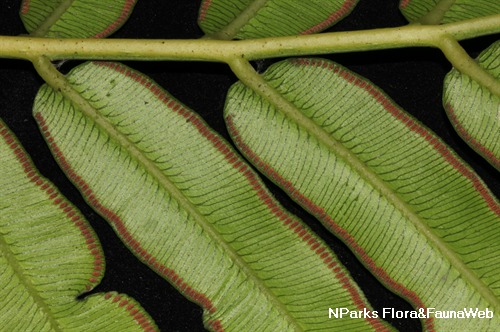
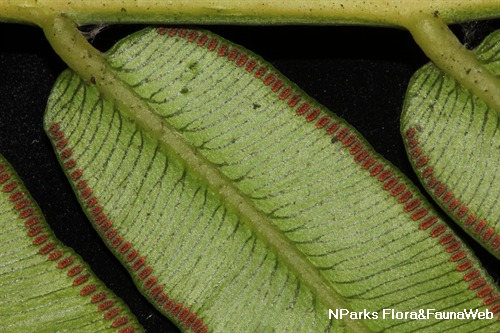
.jpg)
.jpg)
.jpg)
.jpg)